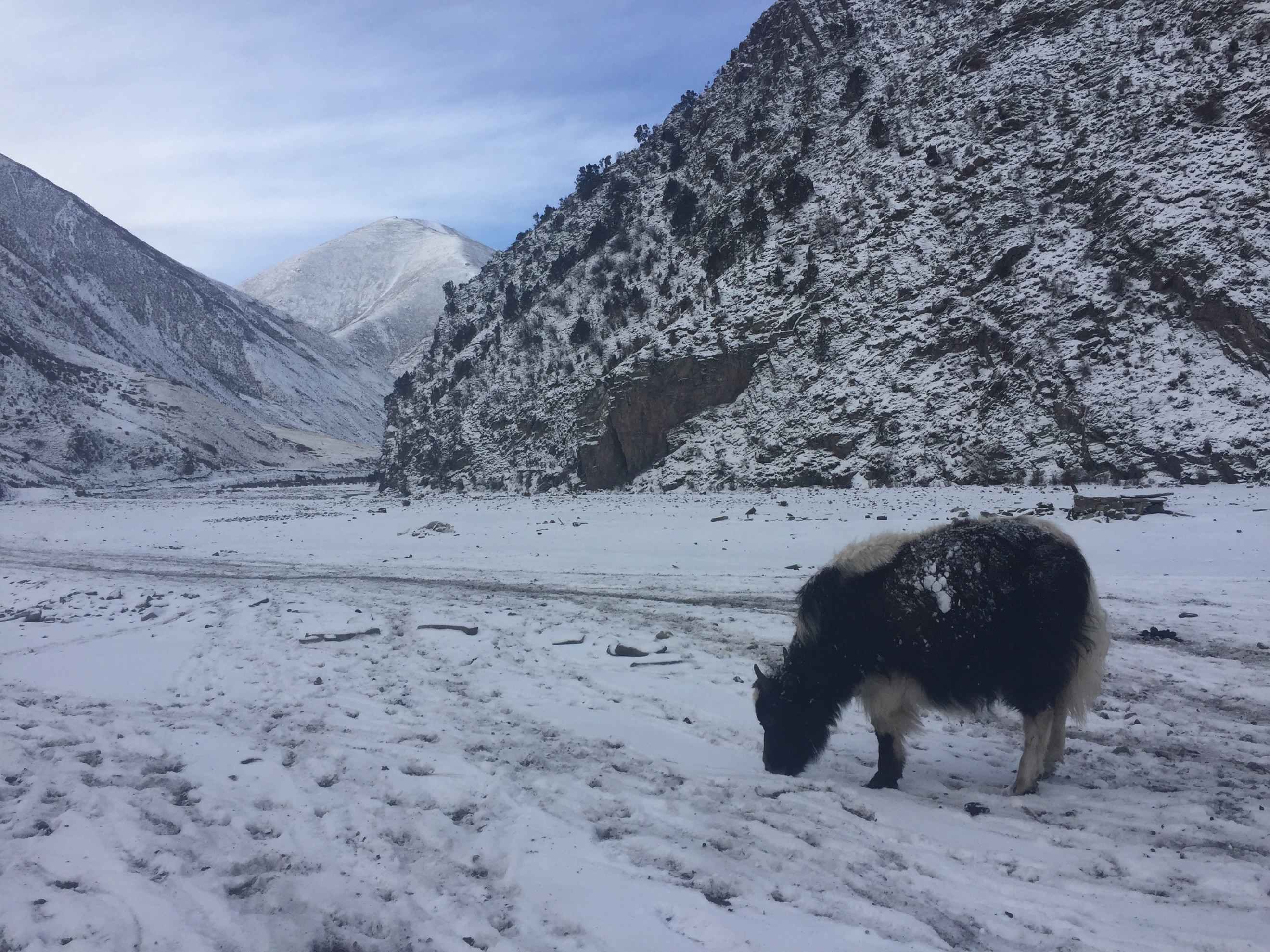
Herding yaks is one of the main sources of income on the Qinghai Plateau. (Photo: CGTN)
The yak is the mammoth animal known to some as the ship of the plateau. But have you ever heard of a team of them conducting transport services? In a border village in Tibet, teams of yaks are helping to change lives through a dedicated fight against poverty.
Whether high atop a plateau or on low-lying ground, the yak is a household name for many Tibetans. But here in Gangsha Village in Burang County, the yak represents a new livelihood and an aid in poverty alleviation. Located at the foot of Mount Kailash, known as the world center for some religions, tourists have flocked to Gangsha Village since the early 1980s.
"Actually in previous generations, it was very difficult to come here. The only thing is if you want to see the Shia, you come here," said Risikesh Mathan, a tourist from India.
Each year, many believers come here to take pilgrimage tours. To them, trekking around the mountain is a holy ritual that can bring good luck and fortune. Risikesh said it's also much easier to come here now. "There are very wonderful roads, wonderful restaurants, everything is fine. There's a very wonderful experience. This is my lifetime achievement. It's a very nice place."
Since the local altitude is close to 5,000 meters, completing this lifetime achievement is never easy. With tourist numbers surging since China's opening up, local herdsmen began to use their yaks and horses to provide transport services. In 1996, a yak transport team was established, bringing a new element to villagers' traditionally nomadic lives.
"Now we have 1,030 members. Last year, the team's annual income was more than 9 million yuan, so that's 9,000 yuan per capita. Some people make up to 13,000 yuan a year, that's good income for locals here," said Pema Wangchuk, team leader of the yak transport team.
In order to improve service quality, the local government helps the team develop training plans. Etiquette and English classes are held regularly every year, and now for team members, learning English is no longer a headache.
"One group, six people, seven people, ten people, that's it. Good activity guide," said Lhundrup, a member of the yak transport team.
Richer, more educated and sustainable. Those are among the words Gangsha villagers now use to describe their path of wealth. As tourism in Tibet continues to increase, this small border village is on another internet revolution promoting web orders and WeChat pay. For the future, locals feel a renewed sense of purpose as well as joy.


